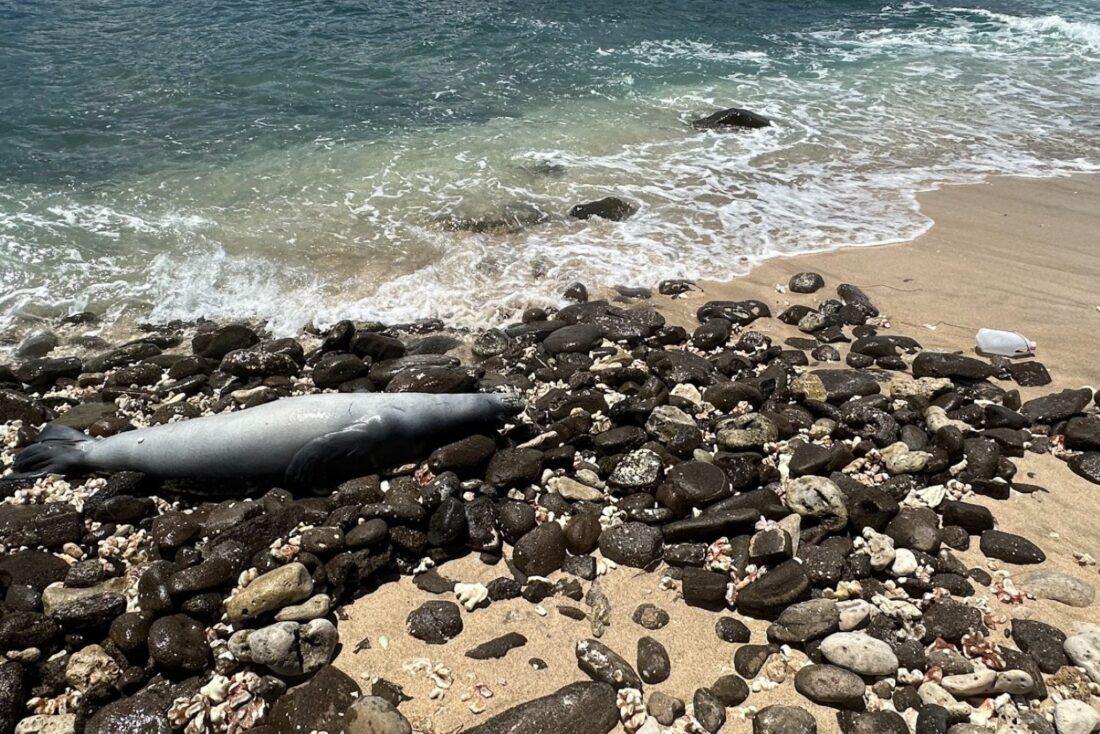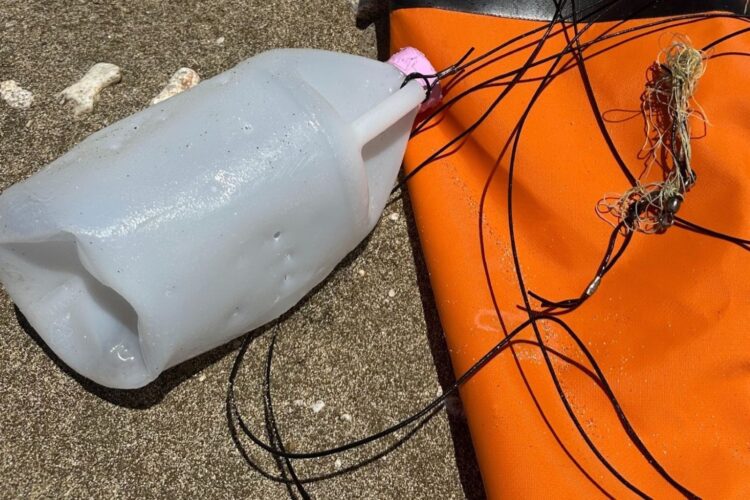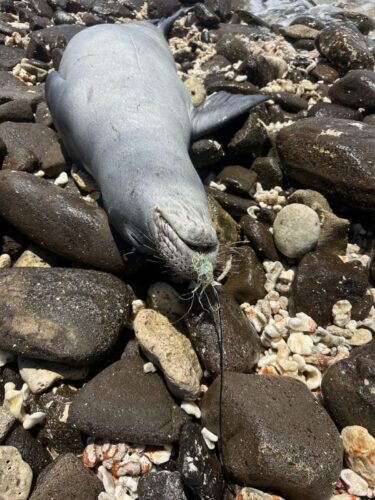Death of monk seal underscores importance of ‘pono’ fishing practices

Endangered Hawaiian monk seal RS34 was found dead on Mānana Island earlier this month as a result of a fisherman’s “jug rig.” Photos courtesy NOAA Fisheries
Editor’s note: This report contains photographs many people may find upsetting. Reader discretion is advised.
State wildlife officials are using the death of 2-year-old Hawaiian monk seal known as Moana to illustrate the consequences of fishing with paddle-out or drone-carried rigs.
According to the Department of Land and Natural Resources, seal RS34, also known as Moana died as a result of a “jug rig.” Her death was discovered earlier in September on Mānana Island. She was one of an estimated 1,600 Hawaiian monk seals left in the world.
Officials say that while the gear used for paddle-out and drone-assisted fishing is generally similar in form to casting and slide baiting, there are some key differences that raise the risk of gear loss and entanglement.
Instead, drone-out and paddle-out rigs often use extremely heavy lines and can include an empty household jug to float the baited hook. When a line breaks during a fight, a fish, marine mammal or turtle can end up dragging an excessive amount of gear, including a buoyant jug.

A long, thick line was connected to a plastic jug and a tangled mass of monofilament, extended from the mouth of deceased Hawaiian monk seal RS34. Photo courtesy NOAA Fisheries
Without intervention or the hook pulling free on its own, an animal trailing potentially hundreds of yards of fishing line will likely die.
“Jug fishing is an extremely unsustainable and undiscerning fishing method,” said John Silberstein, Oʻahu Branch Chief of the DLNR Division of Conservation and Resources Enforcement, in a statement. “This incident is a reminder that the choices we make on the water affect more than just fish.”
According to the department, Moana was born in 2023 as RS34 to seal RF34, her mother’s fourth pup. She was given the name Moana, which means “ocean,” by students at Mālama Honua Elementary School in Waimanalo. Most of her sightings were on Oahu’s offshore islets, where she was born.
“Abandoned fishing gear poses a significant threat to endangered wildlife, which is why promoting pono fishing is a priority for DAR,” said Luna Kekoa, who manages the department’s Division of Aquatic Resources Protected Species Program.

jug-and-line-noaa-fisheries.jpg
A close-up reveals the plastic jug tethered to a thick line. Photo courtesy NOAA Fisheries
The National Oceanic and Atmospheric Administration and Department of Land and Natural Resources are urging the fishing community to take proactive steps to help including:
• Avoid paddle-out jug fishing and similar high-risk methods. These methods can pose a higher risk of entanglement and injury to non-target species. Use of aerial drones for the purpose of fishing (other than reconnaissance) is banned statewide.
• Report lost or taken gear immediately. State officials say they know accidents happen. If a seal takes hooked bait or runs off with fishing gear, people are encouraged to report it to NOAA and DLNR so response teams can look out for the animal and intervene if needed.
• Fish pono. Proper gear use and safe disposal help sustain both fishing resources and Hawaii’s marine wildlife.
If you do paddle lines out, it is recommended that you:
• Use only barbless circle hooks.
• Make a plan to paddle out and recover lost or snagged gear at the end of every trip. Never free a snagged line by cutting the main line from shore.
• Avoid fishing in areas where lines may pose a hazard to surfers, swimmers, boaters or other ocean users.
To report hooked or entangled monk seals, or to report lost fishing gear, call the NOAA Marine Wildlife Hotline at 888-256-9840.


